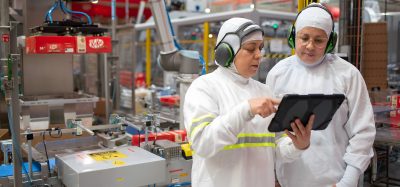Harnessing AI and innovation for global food safety
Posted: 24 June 2025 | Professor Chris Elliott | No comments yet
Professor Chris Elliott highlights new innovations and new approaches that are joining the dots for a united food-safe future.


There is little doubt that the world faces ever-increasing, more complex food safety challenges. I frequently write about these but also some of the solutions on the horizon that I have identified.
I was fortunate to participate in the recent Vienna Food Safety Forum 2025, hosted by the United Nations Industrial Development Organization (UNIDO).
These innovations promise not only safer food for billions of global citizens but also stronger, more resilient supply chains…
At this meeting a bold vision for the future was presented and discussed: one where artificial intelligence, digital technologies and global collaboration will transform how we detect, prevent and respond to the myriad foodborne risks – both current and future.
With experts from over 75 countries and multiple organisations represented at the forum, substantial information was provided on a range of breakthrough innovations ranging from real-time data analytics to smart surveillance systems. These innovations promise not only safer food for billions of global citizens but also stronger, more resilient supply chains. And it was not just about future promises.
A major highlight of the event was the unveiling of UNIDO’s Food Safety Approach 2.0, a new means of modernising national food control systems. It’s aim is to integrate a range of digital tools, incorporate AI, drive food authenticity testing and support a risk-based governance approach to improve the safety, resilience and transparency of national and international food systems.
One of the big questions posed at the forum was about how to operationalise such an approach and it’s important to summarise the major challenges identified.
The first of these is the lack of a coherent food safety approach in many countries in terms of systems and governance. A range of ministries and agencies often compete for resources and have poor levels of collaboration. In all countries, reorganisation can be difficult, painful and slow to implement. Even then, national legislation is often outdated and not fit for purpose in terms of meeting international standards. And in terms of these standards, there is a high degree of complexity driven by their proliferation leading to confusion, especially for SMEs who struggle to understand how compliance can actually be achieved.
The second issue is the lack of digital infrastructure in terms of technology and skills needed to adopt digital tools and AI-based solutions. What infrastructure is in place suffers significant challenges in terms of interoperability, ie, the age-old problems of systems not communicating with one another. The urgent need for investment in terms of capacity building of digital systems and human capital is very clear.
The third of the major challenges that I identified is the lack of scientific data, ie, evidence, required to populate such digital systems. Food safety sampling and testing programmes are lacking in many countries due to the lack of laboratories, skills and financial resource to operate such programmes that are common in the developed world. Much of this data is believed to reside within the private sector. To not only get the systems in place that enable data to be shared with regulators but also the levels of trust needed to accomplish this will be very challenging. Here I think many lessons can be learned from several public–private data-sharing partnerships that exist in the developed world and none more so than the Food Industry Intelligence Network.
In my opinion, the Vienna Food Safety Forum was a tremendous success. It helped identify not only the challenges but also what needs to be done in terms of harnessing digitilisation, AI and innovation to drive the production of safer food for all. The ‘Call to Arms’ which can be taken from the event can be summarised as follows:
- There’s a strong need for investment in digital infrastructure and AI tools to enable real-time risk detection and improved traceability
- There’s a strong need for regulatory coherence across borders, particularly supporting harmonisation of standards in developing regions
- There’s a strong need for capacity building for national authorities and SMEs, ensuring no one is left behind in the food safety modernisation journey
- There’s a strong need for public–private partnerships to co-create practical, scalable food safety solutions that will support international trade and deliver safer food for all
- There’s a strong need to move from purely reactive food safety enforcement to proactive, risk-based prevention strategies.
In my mind, the roadmap for driving safer food for all is much clearer now than before the event. It’s about the ‘three Ds’: delivery, delivery, delivery… Despite the challenges the global community faces on many fronts, we know what needs to be done and there’s a strong momentum to make sure it happens.









